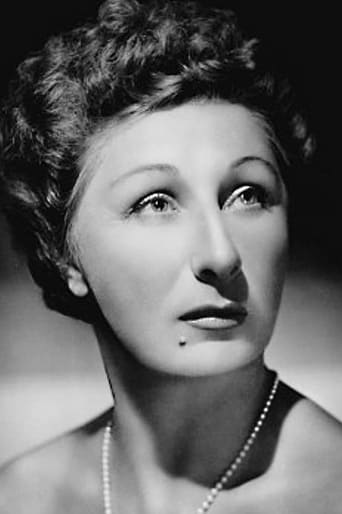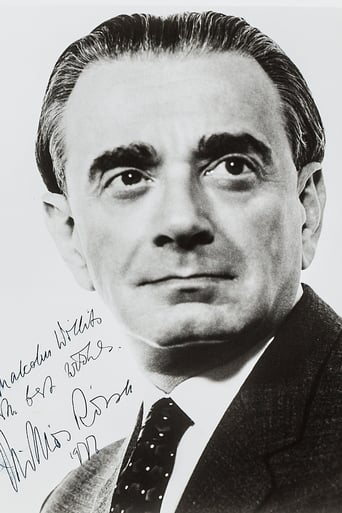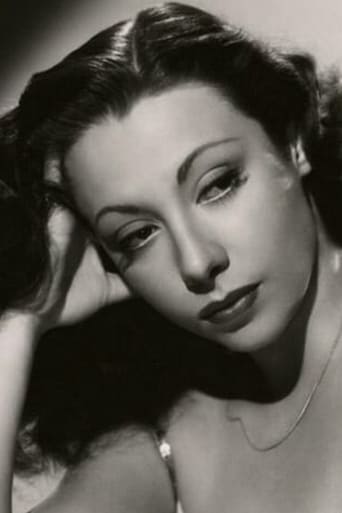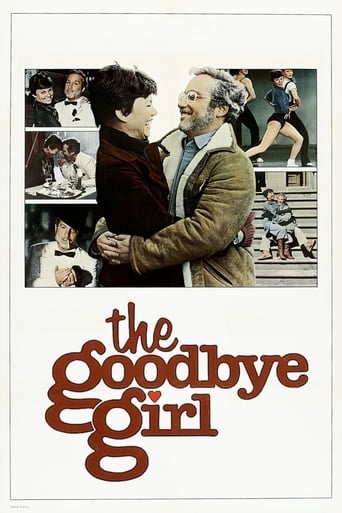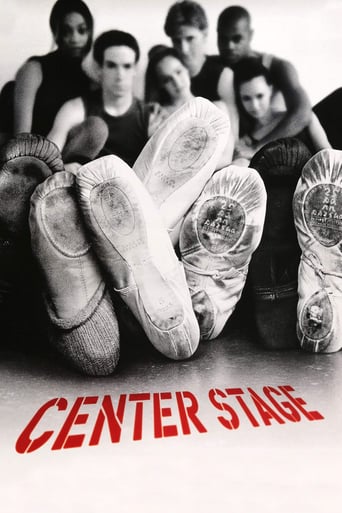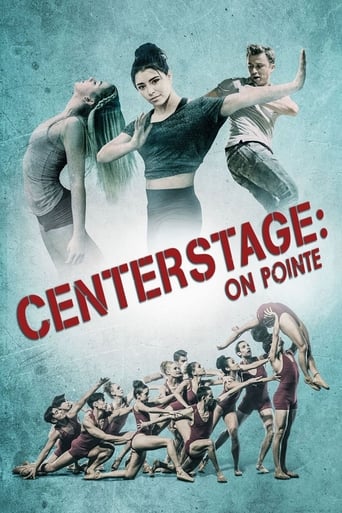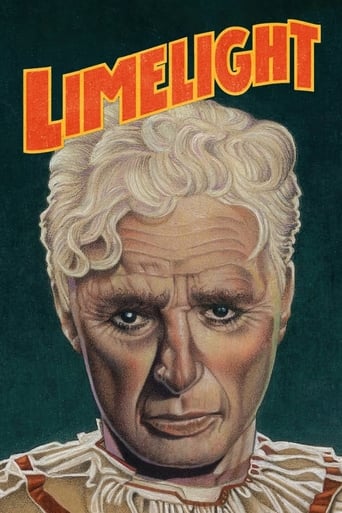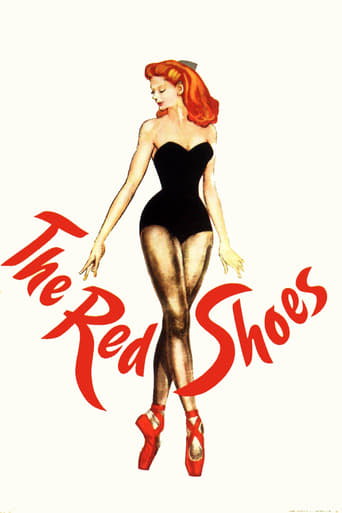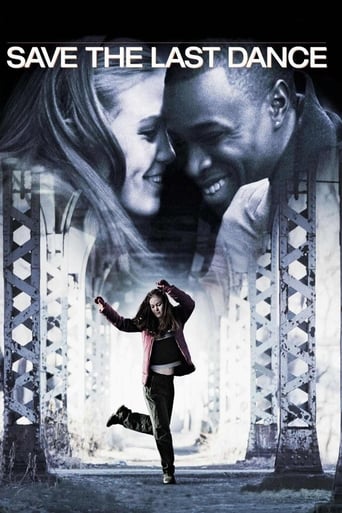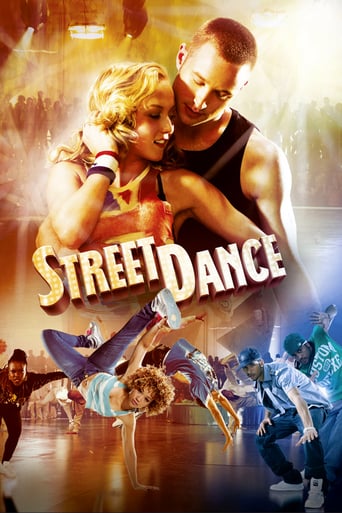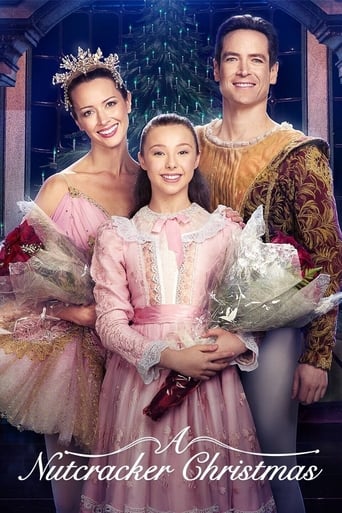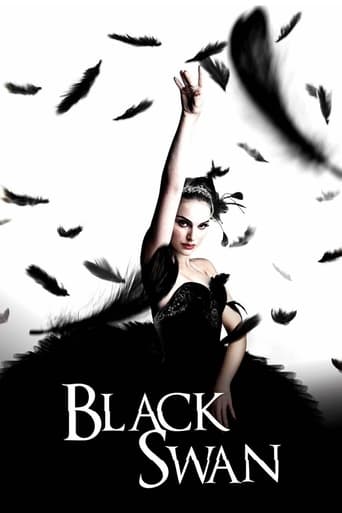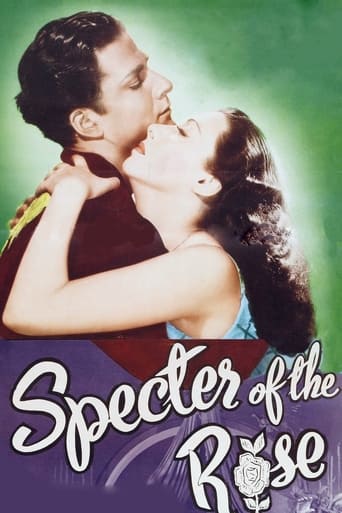
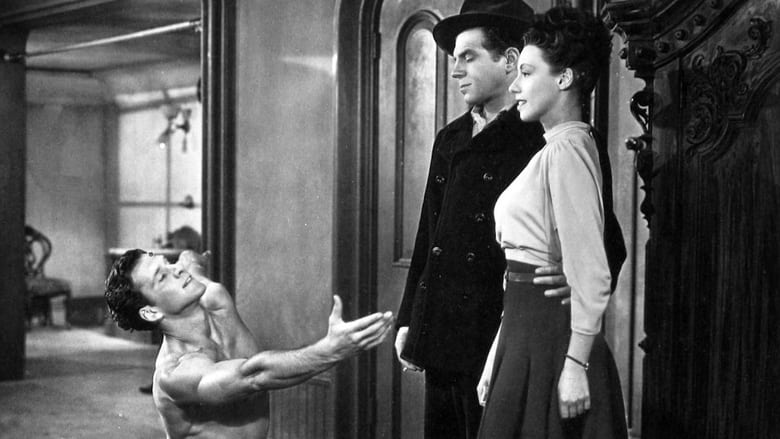
Specter of the Rose (1946)
Ballet dancer Sanine may have murdered his first wife. A detective thinks so, and he's not the only one.
Watch Trailer
Cast


Similar titles
Reviews
Judith Anderson who was the nasty, evil Danvers in Rebecca and the miscast "big mama" with a British-Louisiana accent in Cat on a Hot Tin Roof plays a former ballerina who runs a ballet school (don't they all?). Lionel Sandler who became the gruff major domo in the TV series Hart to Hart, plays a gruff non-rhyming poet. Some other guy, plays an over the top effectual show biz promoter. This other guy decides to resurrect the career of a the brilliant ballet dancer Ivor Somebody,who may or may not have killed his wife a few months early and since then he has become a looney toon recluse;he hears music in his head and sees ghost dancers with his face. Anywho, he says he is OK now and begins a series of road shows and has a hot love and marriage to another dancer, I forget her name..she made two movies in her entire career...twice as many as Ivor. Well, as luck would have it, sometime after Kansas City, Ivor sort of starts going cuckoo again. Lots of drama and jumping and twirling which is suppose to resemble ballet ensues and instead of slitting his wife's throat he takes a flying leap out the plate glass window. Kerplunk. Some silly dialog for a couple of minutes. And then the movie ends. I streamed this on Netflix but the won't give me a pro-rated credit. The acting is dreadful. The dancing by Ivor is gymnastics, not ballet. The whole thing is awful.
18 years before Susan Sontag defined "camp" in her famous 1964 essay, Ben Hecht fully realized its on screen possibilities with his "The Spectre and the Rose." Words fail entirely to capture the fruity tongue in cheek ineptitude here--it must be seen to be believed.Judith Anderson, who looks like a fortune teller for a rural traveling carnival, is worth the whole price of admission. She utters lines like: "We've eaten caviar and we've eaten sawdust," but, oops, that was actually Joan Crawford's line from "Berserk," (which is, in many ways, cut from the same cloth.)Well, anyway, you get the point.
Whatever unfulfilled ambitions drove Ben Hecht to write, produce and direct Spectre of the Rose, it's charitable to pretend they bore scant relation to the gruesome folly that eventuated. Did Hollywood's most prolific uncredited contributor to great screenplays crave the glory that would come with his very own Citizen Kane? If so, he made choices that can only be accounted as bizarre.First, he set his story in the world of `the dance.' Since of all the arts, ballet, for Americans at any rate, reeks of the rarefied the elite, movies about it invariably lapse into gaseous talk about `aaht.' Spectre of the Rose dives right into this pitfall. The high-flown, portentous dialogue must have entranced Hecht but it plainly baffles his cast. They variously give it stilted readings, flat it out, and drop quotation marks around it, but except for Judith Anderson as an old assoluta now training novices in a `dingy' studio nobody can make it work. (But then, she made Lady Scarface work.)The plot concerns a deranged male superstar called Sanine (Ivan Kirov), who may have murdered his first wife and partner and now seems to be rehearsing to kill his second (Viola Essen). It's safe to presume Kirov was engaged only to fling his polished torso around because he can't even act embarrassed; it's no surprise that this is his solitary screen credit. But his murderous madness just sits there, with a take-it-or-leave-it shrug, while the movie pirouettes off on other tangents. There's a larcenous impresario (Michael Chekhov) who outdoes even Clifton Webb in trying to break down the celluloid closet's door. Most puzzlingly, there's Lionel Stander as a Runyonesque poet who seems intended as some sort of Greek chorus to the goings-on but serves instead as a major irritant, uninvited and out of place.Without knowing what compromises Hecht made and obstacles he faced in bringing his work to the screen, it's easy to be glib. But there's such a discordance of tones and jostling of moods that the movie elicits diverse responses; thus some viewers have found in Spectre of the Rose something special and unique. Movies, maybe more than any other art form, touch our idiosyncracies. But when we're left unsure whether The Spectre of the Rose is dead-earnest or a grandiose spoof an election-bet of a movie -- something has gone radically awry.
This seldom seen film produced, written and directed by Ben Hecht, brings some terrific dancing, namely from the two leads, Ivan Kirov [with a gorgeous physique, and doing fantastic leaps and bounds] and Viola Essen [another fine ballet dancer]whom I had the pleasure of auditioning with back in the 50s for "Dead End" [roles of Baby Face Martin and his ex-girl friend Francie] we didn't get cast, unfortunately. They bring some wonderful moments of dance in spite of a somewhat hard to believe plot and corny lines. Appearing as La Sylph, who sits around knitting, while the dancers go through their paces is none other than Dame Judith Anderson, the queen of film noir [such as "Laura"]. She does manage to keep herself out of the mire of this melodramatic piece with her presence. Add to this another great actor, Michael Chekhov, from Russia's Stanislavski Moscow Theatre, giving a silly performance of a foppish manager of the dance troupe. He did more realistic acting in the such of "Spellbound" and "Rhapsody". Hard to believe from this performance he was the great acting teacher of the time along with Sanford Meisner. Then there's comedian Lionel Stander being realistic as a sort of serious suitor to our leading lady. The choreography was done by none other than Tamara Geva, once married to George Balanchine, and star of Broadway's "On Your Toes" starring Ray Bolger where she initiated the "Slaughter On Seventh Avenue" ballet. [Later brought to film by Gene Kelly and Vera Ellen in "Words & Music"] In spite of a twisted plot and sketchy dialogue, you become fascinated with this gem of a movie. Watching the lovers dance is worth the price of admission.


